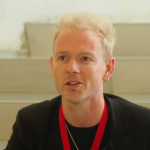Building capacity and delivering instrumental impact on parental perinatal mental health
Start date
August 2020End date
May 2021Project website
ViewOverview
Amid growing evidence of the mental health difficulties that can be experienced by both mothers and fathers in the perinatal period, the need for appropriate information and support is acute.
This ESRC IAA project puts key findings and recommendations from University of Surrey research on new fathers, mothers and mental health into practice through engagement with practitioners and parents.
Dr Ranjana Das and Dr Paul Hodkinson have teamed up with The National Childbirth Trust and The Institute of Health Visiting, to improve information and support through enhancements to practitioner understandings and practice and the production of on and offline information resources for parents.
Their work builds on four smaller studies that have brought the mental health of mothers and fathers to the forefront, the most recent being Paul and Ranjana's research into parental experiences during the first Covid-19 lockdown. 'Parenting in a Pandemic' became the title of an online Festival of Social Science event that attracted well over 500 participants.
The Institute of Health Visiting are putting great importance on parental mental health and claim, "We are on a shared mission, to enable every baby, every child to be healthy, safe, happy, and valued and for every parent to feel supported and able to achieve this." The NCT has also identified parental mental health as a priority area. Its recent Hidden Half Campaign raised the profile of mothers’ perinatal mental health, and the barriers to women receiving a timely diagnosis and treatment.
Team

Professor Ranjana Das
Professor
Biography
I am a Professor in the School of Social Sciences at the University of Surrey, where I am a member of the Senate, and where I sit on the University Research and Innovation Committee. My research interests span technology use and user centric research on algorithms, datafication, and broader digital technologies.
I dovetail these interests often with my interest in families, parenting and parenthood. I also have a longstanding background of interest and expertise in media audiences, including 'audiences' in transforming media environments. I hold a PhD from the Department of Media and Communication at the London School of Economics(2008-2011) where I was supervised by Professor Sonia Livingstone. I was Post-doctoral Fellow at Leuphana, University of Luneburg(2011-2012) and Lecturer at the School of Media, Communication and Sociology at the University of Leicester (2012-2017).
I joined the University of Surrey as Senior Lecturer in 2017, was promoted to Reader in 2018 and promoted to Professor in 2021. I have directed a research consortium on the future of audiences in the context of emerging technologies (funded by the AHRC, 2015-2018), and have been Chair of the Audience and Reception Studies division of the ECREA (2014-2017).
Current and recent projects -
2023-2025: Leverhulme Research Project Grant: Parents', news use, risks and crises in datafied societies (PI)
New book: ‘Parents talking algorithms’: Published in December 2024, with Bristol University Press.
2023-2025: British Academy Grant: Linguistic minority families, emerging technologies, and the raising of bilingual children (PI)
2022-2023: Data-driven media personalisation (Co-I): Funded by AI4ME, with Philip Jackson (FEPS), Rhianne Jones (BBC) and Yen Nee Wong (Kent)
Outside of these current and recent projects, my work has been funded by the Wellcome Trust, the British Academy, the Arts and Humanities Research Council and the ESRC impact fund.
Potential PhD students: I am happy to consider PhD proposals in various areas within sociology and media and communications.

Professor Paul Hodkinson
Professor of Sociology
Biography
- I research fathers and fathering, masculinities and the life course, youth cultures, and digital social media spaces.
- My books include New Fathers, Mental Health and Digital Communication, Sharing Care: Equal and Primary Carer Fathers and Early Years Parenting, Goth: Identity, Style and Subculture, Media, Culture and Society, Youth Cultures and Ageing and Youth Cultures.
- Academic journals I have published in include Sociology, British Journal of Sociology, Current Sociology, New Media and Society, Social Media and Society and Journal of Youth Studies.
- I have examined 38 PhDs and have supervised 10 PhD students through to completion.
- My work on youth subcultures features in UK Sociology A-Level syllabi.
Our partners
This project is a partnership between the University of Surrey and two national organisations supporting parents and children. The Institute of Health Visiting and The National Childbirth Trust.
Outputs
Dr Ranjana Das and Dr Paul Hodkinson ran a hugely popular ESRC Festival of Social Science event in November 2020 'Parenting in a Pandemic':
February 2021
Ranjana and Paul have launched a book as a result of their IAA funded project, entitled; "New Fathers, Mental Health and Digital Communication." This book explores the experiences of new fathers struggling with mental health difficulties and focuses on the role of digital media as part of their approaches to coping. More information about the book can be found here.
June 2021
On International Fathers’ Mental Health Day, the Institute of Health Visiting (iHV), in partnership with Dr Ranjana Das and Dr Paul Hodkinson from the University of Surrey, is delighted to announce the launch of three new ‘Factographics’ interactive resources - designed to better support the mental health of new mothers and fathers.
Mental health problems in the time around having a baby are common and, left untreated, can have significant short- and long-term impact for all members of the family. Identifying problems early and offering the right support and treatment maximises the opportunity for good outcomes for the whole family. The new resources, based on research findings by Dr Das and Dr Hodkinson on new parents’ mental health, were developed in partnership with the iHV, parents and professionals, who worked together to translate the findings into meaningful sustainable resources that can be used by parents and professionals at every local level.
The three new interactive Factographics resources to support perinatal mental health are oriented to groups or areas where we know there are unique unmet needs - namely, new fathers, mothers from British South Asian communities, and parents who had a baby during the COVID-19 pandemic.
Melita Walker, Mental Health Lead at the Institute of Health Visiting, said: “These fabulous Factographics are produced in an innovative format that is engaging to all users, and are co-produced ‘by parents and healthcare professionals for use by parents and healthcare professionals’. They highlight some of the barriers to engagement, share stories and media clips about individual experiences, and provide links to organisations and helplines. Factographics strengthen relationships between parents and professionals, they bust myths and stigma and, most importantly, they let parents know that they are not alone and that there is help - they offer parents a sense of hope.”
Dr Ranjana Das and Dr Paul Hodkinson at the University of Surrey said: “Though it can often be a time of joy, becoming a new parent can be immensely challenging. We are delighted to see our research findings around unmet mental health needs become a tangible, concrete resource for people to use. This collaboration has brought to life the experiences and stories we have heard in our research, in a way that will benefit new parents and professionals going forward. For more information on our project do look at our website www.surreyperinatal.net.”
Funded by an Impact Acceleration Award from the Economic and Social Research Council at the University of Surrey, the Factographics resources are in an innovative format that is engaging and useful to all - whether academics, commissioners, parents or healthcare professionals. Digitalised so they can work as a living sustainable resource – they are a national template created for local implementation. Available in web, mobile and PDF versions, they can be accessed directly by parents or shared by healthcare professionals and will be ideal for use in local public health campaigns.
Links to Factographics
New dad? You’re not alone…Factographic
A baby is a blessing so why do I feel this way? Factographic
New parent during the pandemic? Factographic
About the Factographics
The Factographics focus on groups where there are unique unmet needs, including new fathers, mothers from British South Asian communities and parents who had a baby during the COVID19 pandemic.
They are available for new parents to access directly and for health professionals to share in their interactions with parents.
Each Factographic is interactive, combining images, text and video testimonials from both parents who have struggled and health visitors who are trained in this area.
They focus particularly on the mental health and wellbeing challenges that many new parents experience.
Impact
This project has a realistic and ambitious impact agenda with outputs coming in the form of parent/practitioner-facing resources and events that will enhance professional practice and help enable new parents to receive mental health related information and support.
The team will:
- Engage with key ante-natal and post-natal professionals and contribute to their existing practices in order to enhance their practice with respect to perinatal mental health.
- Enhance the provision of well-informed direct communication about perinatal mental health issues with new parents via on and offline materials.
- Improve communication and support related to sometimes neglected or difficult to reach groups, including fathers and migrant mothers.
Impact Acceleration Account awarded projects
Our projects are all playing their part in turning social science research outcomes into meaningful impact that will touch our lives and communities.

